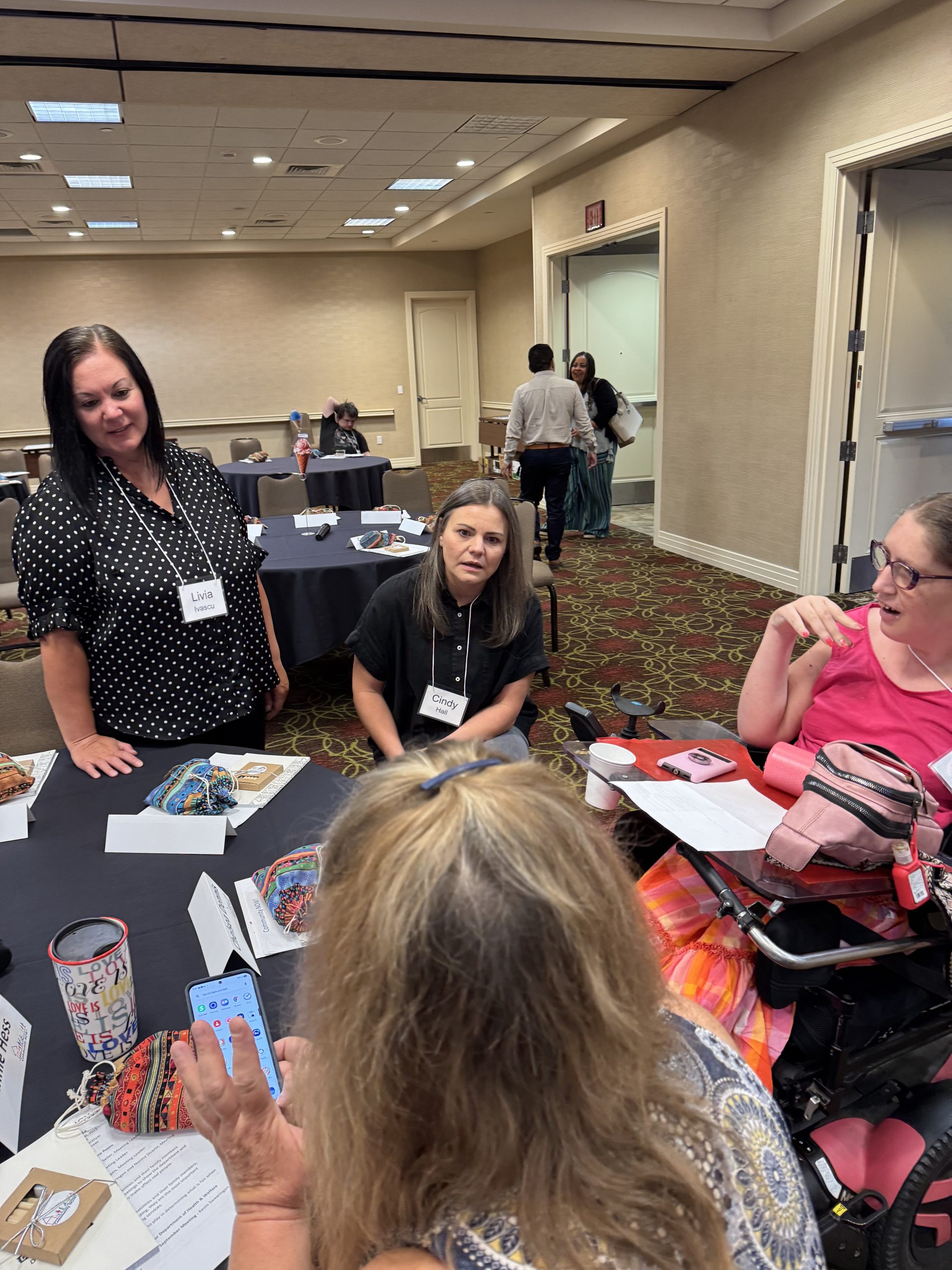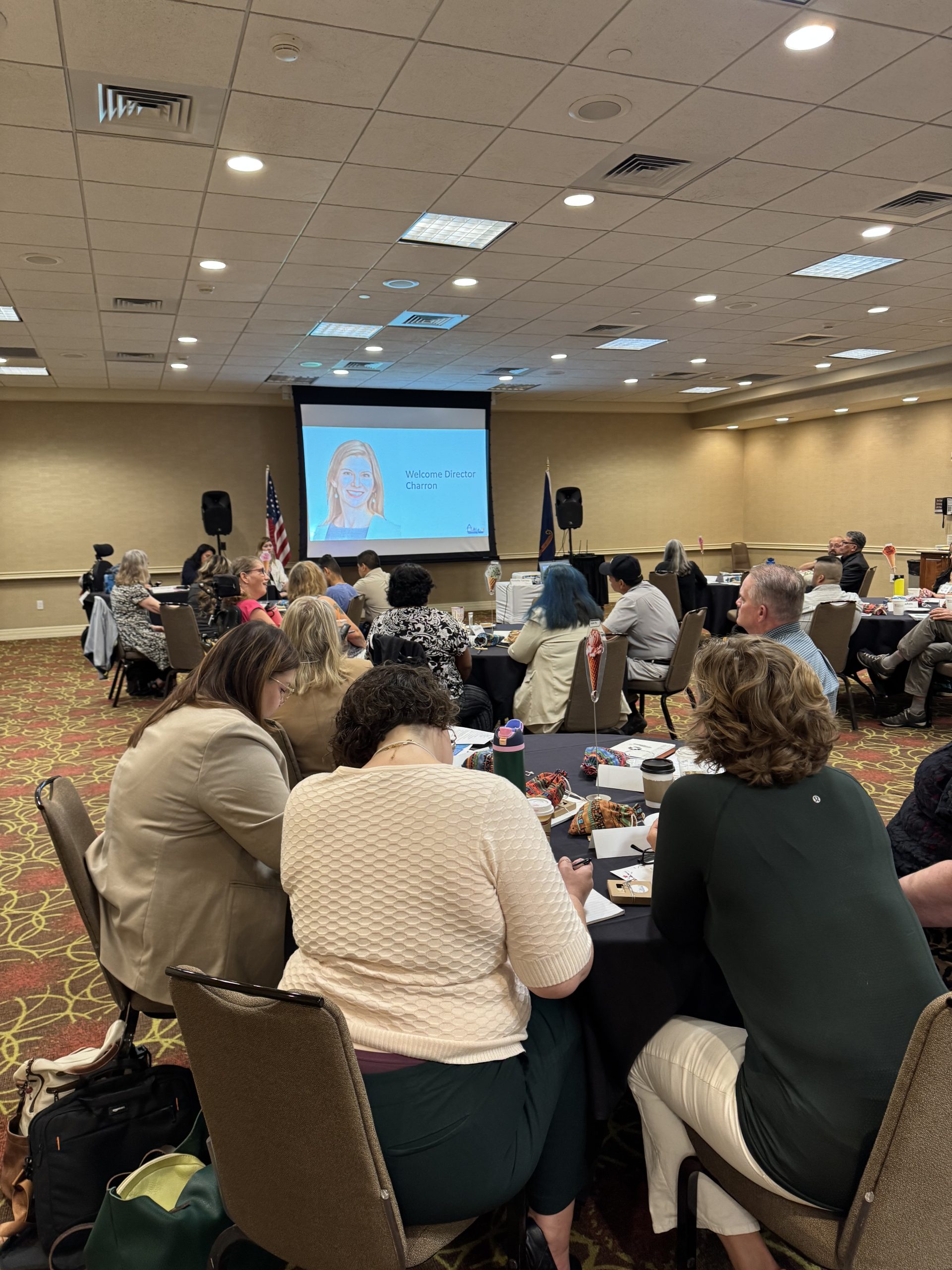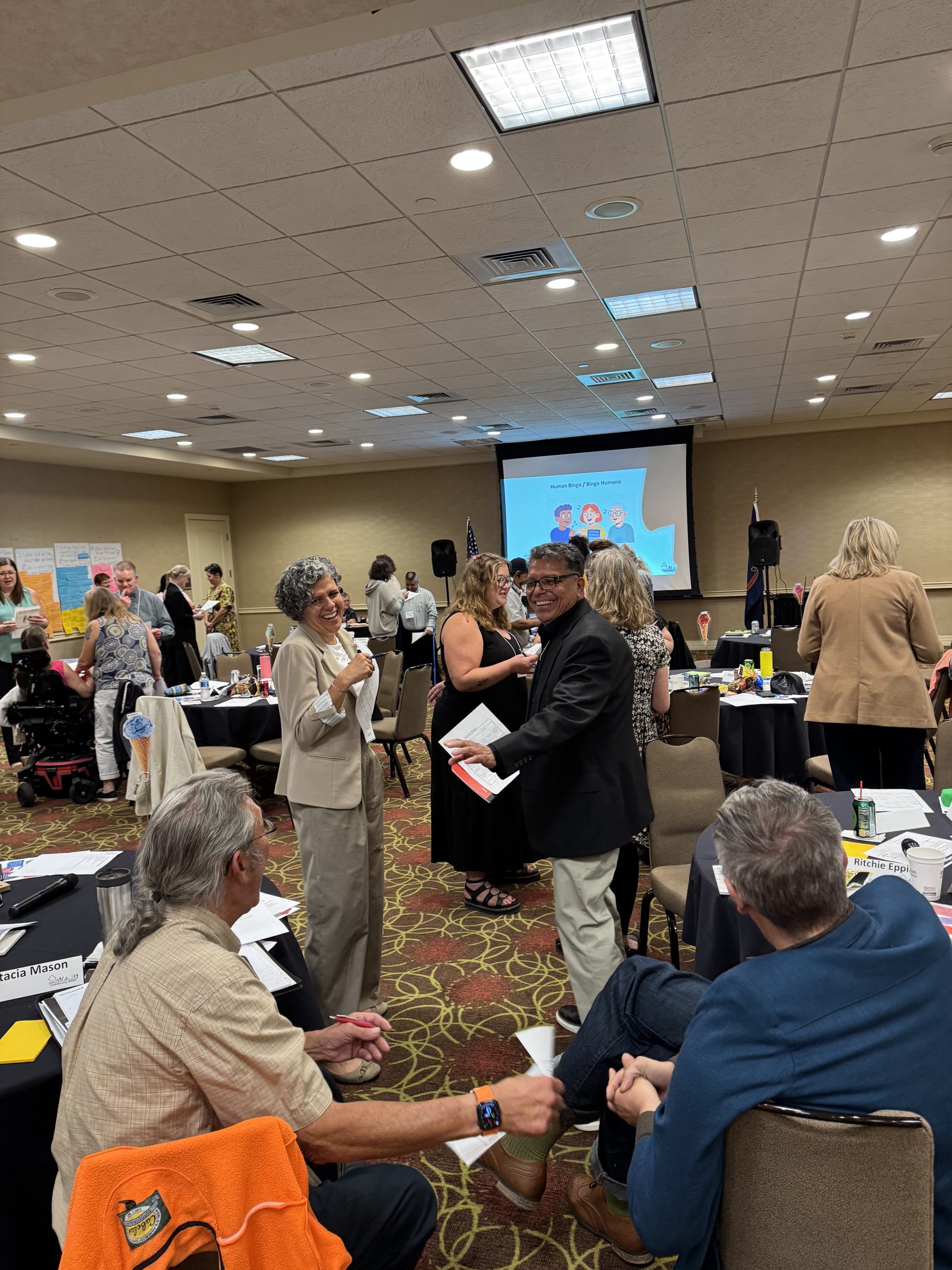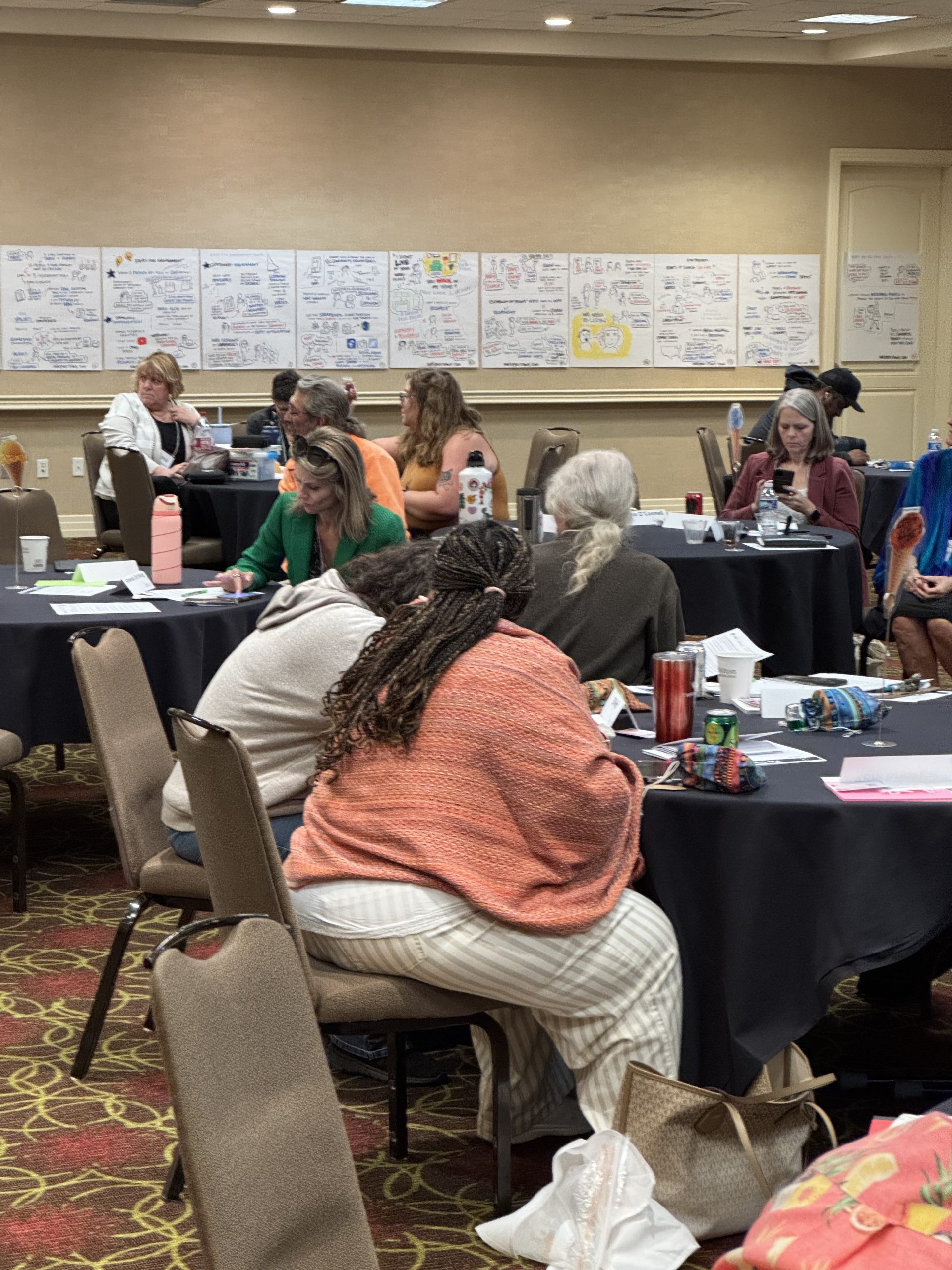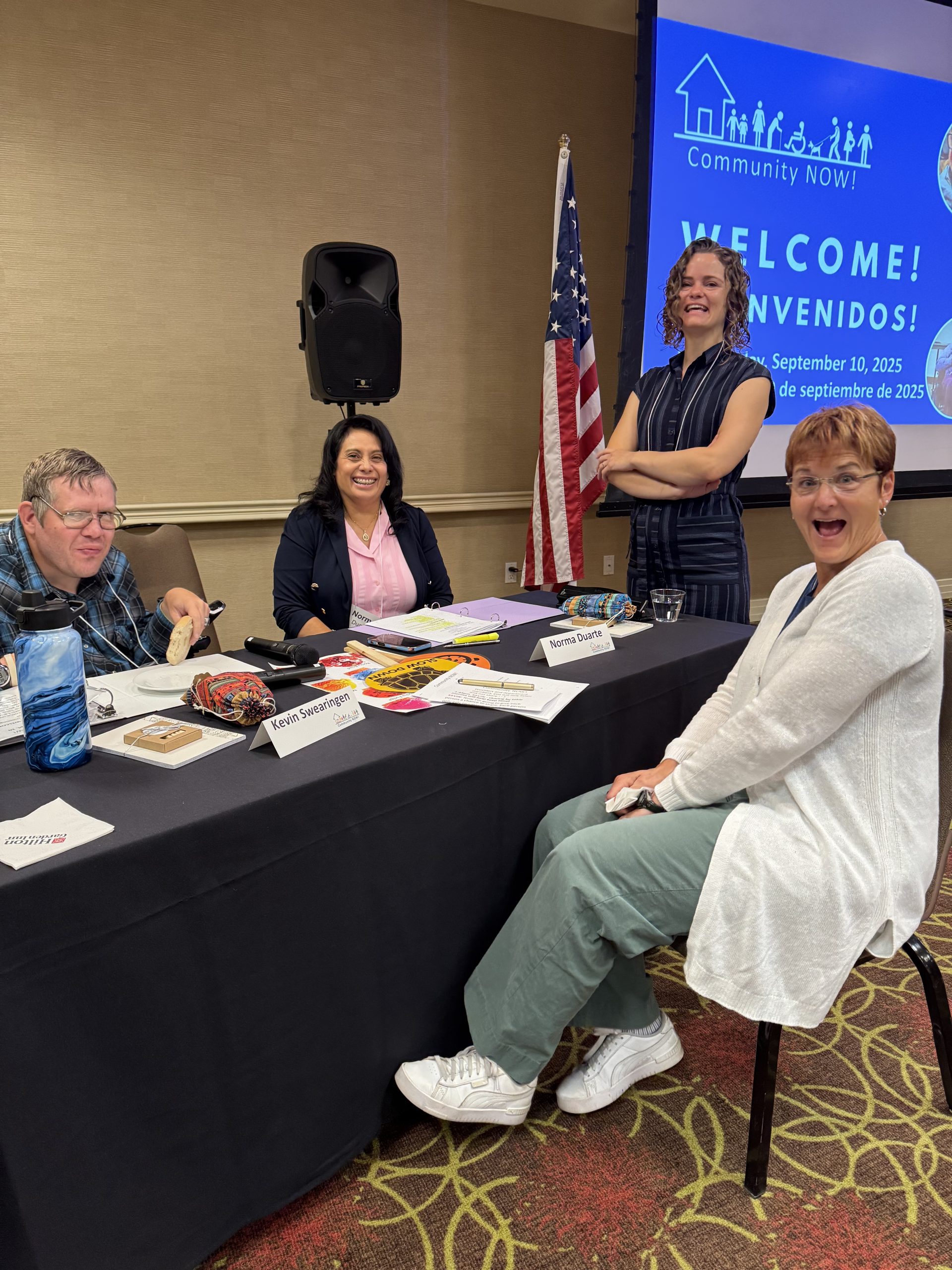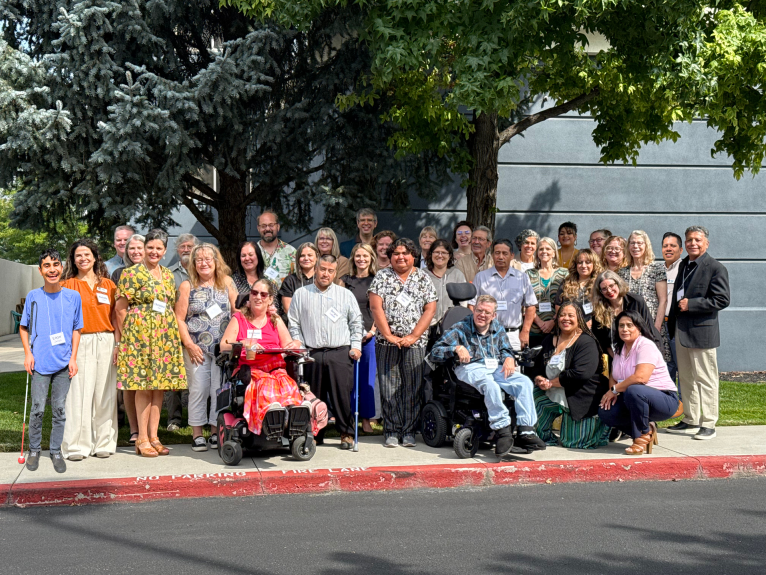
Community NOW! is a statewide collaborative workgroup led by adults with intellectual and developmental disabilities (I/DD) and their families, who participate in Medicaid home and community-based services. The Workgroup allows adults with I/DD to lead discussions about adult developmental disability (DD) services under Idaho’s Medicaid DD Waiver program. It is made possible through the shared resources of the Idaho Council on Developmental Disabilities and the Department of Health & Welfare.
Meetings and discussions are part of the implementation of the K.W. v. Armstrong settlement agreement. The Workgroup of over 60 people brings together:
- Adults with I/DD;
- Family members who support and speak on behalf of adults with I/DD;
- Department managers and administrators;
- Advocacy groups such as the DD Council, Disability Rights Idaho, and The Center on Disabilities and Human Development at the University of Idaho;
- Medicaid service providers; and
- Representatives from the Idaho Attorney General’s Office (OAG), the American Civil Liberties Union (ACLU), and Human Services Research Institute (HSRI).
Meeting Update
September 2025
Community NOW! had a great two-day meeting in Boise, September 10-11, led by state leaders Kevin Swearingen and Norma Duarte. We are thankful to Juliet Charron, Director of the Idaho Department of Health & Welfare, for spending the first morning of our meeting with Community NOW! members to share her vision for the Department and take time to answer questions from members. Ruby Moore, Special Master for the KW vs. Armstrong lawsuit, Ritchie Eppink, Attorney for the Class members, and Megan Anderson, Attorney for the Department, each presented on the work needed to be done to complete the KW lawsuit. It was reported that the state has narrowed down the number of assessment tools to three being considered. We learned from Community NOW! members their thoughts about the work going forward, what they liked about what they heard from the presenters, and collected additional questions they had. In mid-October, the Department will work with adults with intellectual and developmental disabilities (I/DD) and parents to review three assessment tools. The group will rate each assessment and decide which is the best one. It is expected that by the end of the year, the final tool will be announced.
Ritchie Eppink, Attorney for the Class members, presented on the expectations of engagement and active participation plan outlines in the KW vs. Armstrong settlement. Throughout every step of building the new budget system, the court requires the Department and Special Master to do the following:
- Encourage engagement and active involvement from people with I/DD and families
- Report to people with I/DD and families on the status of developing the new budget system and testing to be sure it works, and be sure a suitable representative is there for you (someone who can get you the budget you need).
- Get comments from people with I/DD and families at least every 6 months until the plan for testing is approved by the court
- Communicate in clear language and layout
- Get feedback from people with I/DD and families on any assessment tool, budget criteria, or any process that we think we want to use before it’s done
Community NOW! members also provided input into the engagement and active participation plan for Community NOW!, Statewide Communication, and a Statewide Engagement Plan. People with I/DD and family members provided their thoughts about what this statement meant to them: “I DO NOT LIVE IN YOUR WORKPLACE YOU WORK IN MY HOME.”
“Respect me and my autonomy and boundaries. One thing I do is have a conversation at the first meeting about boundaries and what’s important to me before I hire someone. Sharing what is OK and what is not OK with the staff person. The person in their home has their needs met instead of having someone tell them what their needs are.” Self-advocate
“Sometimes my staff wants a break, but sometimes they’ll take advantage of the break and leave me alone, which makes me feel uncomfortable.” Self-Advocate
“Please be respectful: Sometimes my staff don’t want to walk with me, but that’s really their job.” Self-Advocate
“We need to establish who works for whom. And staff need to be responsive and be present to the person they work for.” Family member
“This is an awareness concept that staff would be well-served to understand “nothing about us without us” …so in terms of coming into a space where the self-advocate is, we have to remember this is all about her and staff must acknowledge her and talk with her and then go about the work that is needed.” Family member
“Be respectful – Side conversations with staff should not happen in front of the person they are serving; be aware of her priorities and how you as staff impact the person you are working with.” Family member
“I expect you to understand and know the person you are serving; for example, the temperature of the house should be set to her comfort, not the staff’s comfort.” Family member
The Council would like to express our gratitude to all Community NOW! members for attending the recent meeting. Also, a huge thank you to our meeting leaders, Kevin Swearingen and Norma Duarte, for doing an amazing job leading the meeting!
Projects & Activities
Our Care Can’t Wait
Our Care Can’t Wait, is a coalition of people with disabilities, families, disability advocacy organizations, and HCBS provider agencies working to ensure people with disabilities and families have a well-qualified, reliable workforce that meets their needs to live the life they choose.
The coalition is working on pushing forward Community NOW recommendations from the Bfair2DirectCare workgroup. Click here for more information.
Publications Related to Goals & Objectives
This work is supported by a grant from the U.S. Administration for Community Living, Department of Health and Human Services, Washington, D.C. 20201 with 100% federal funding award totaling $526,312 (Federal Fiscal Year 2025 Grant No.: 2501IDSCDD). Council efforts are those of the grantee and do not necessarily represent the official views of nor are endorsed by ACL, HHS, or the U.S. government.
 Official Government Website
Official Government Website
